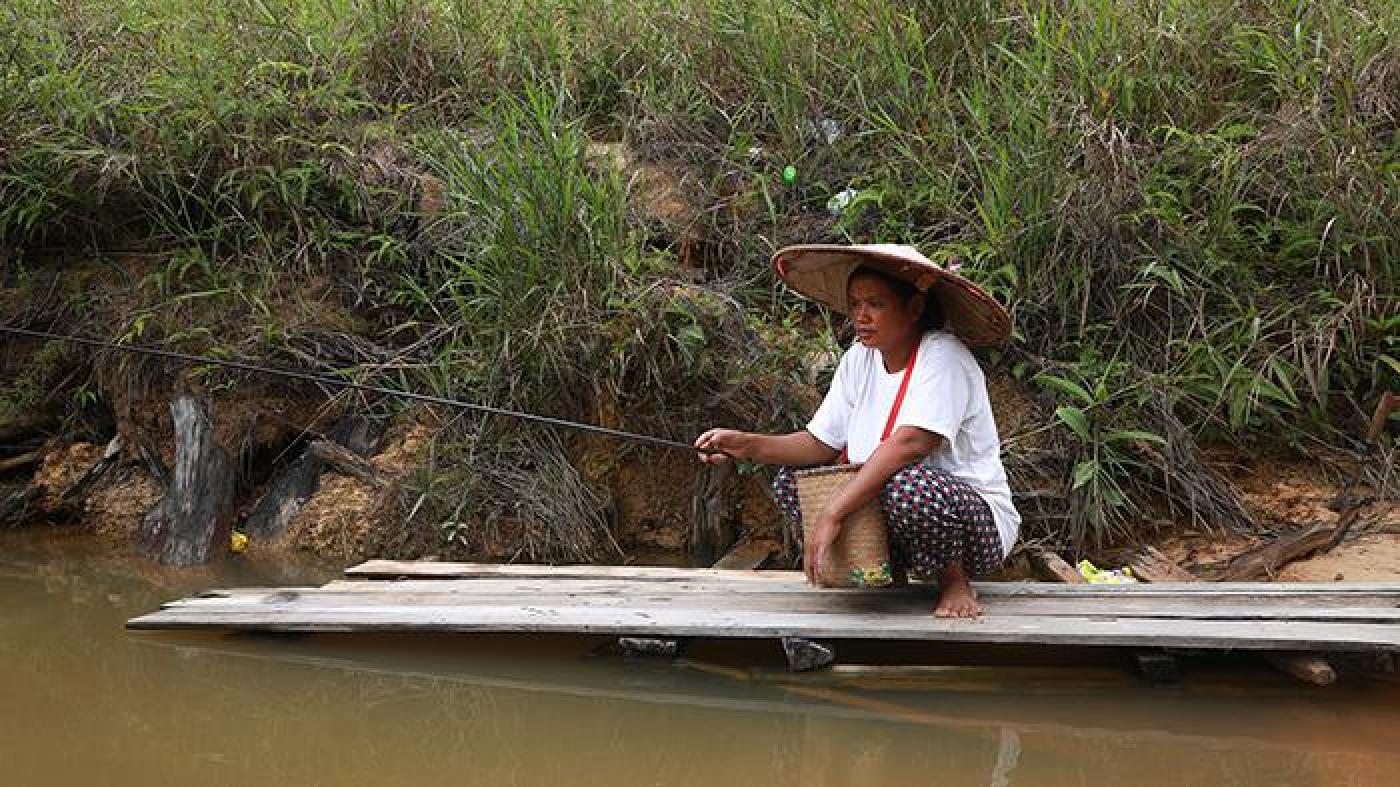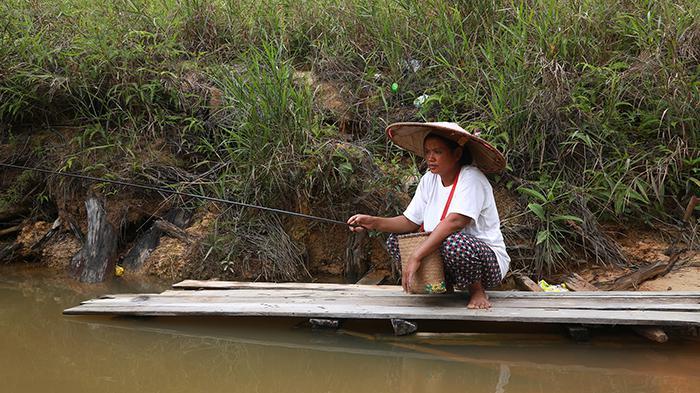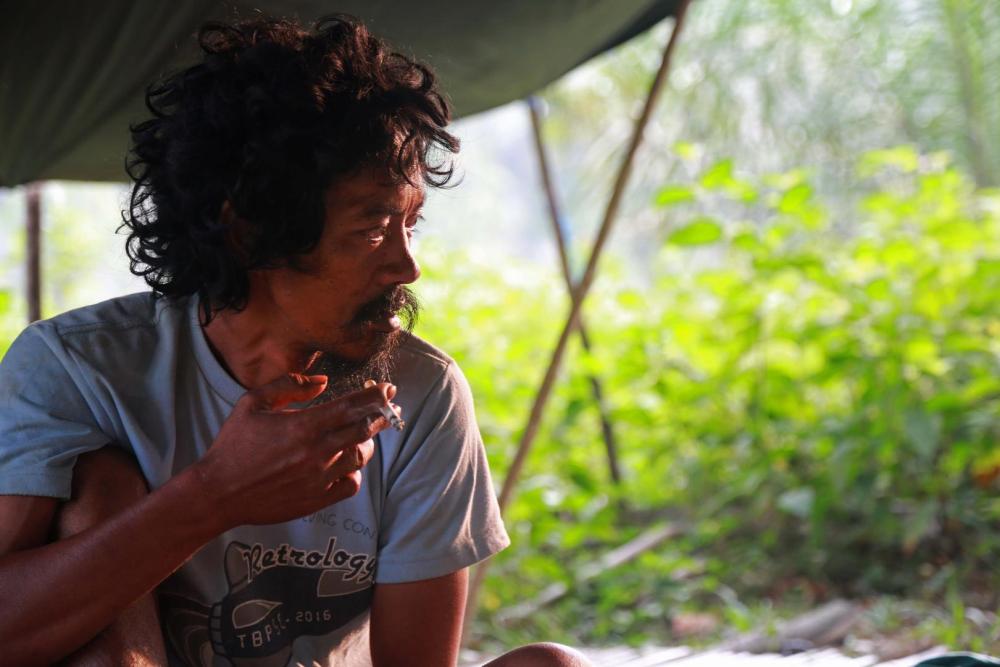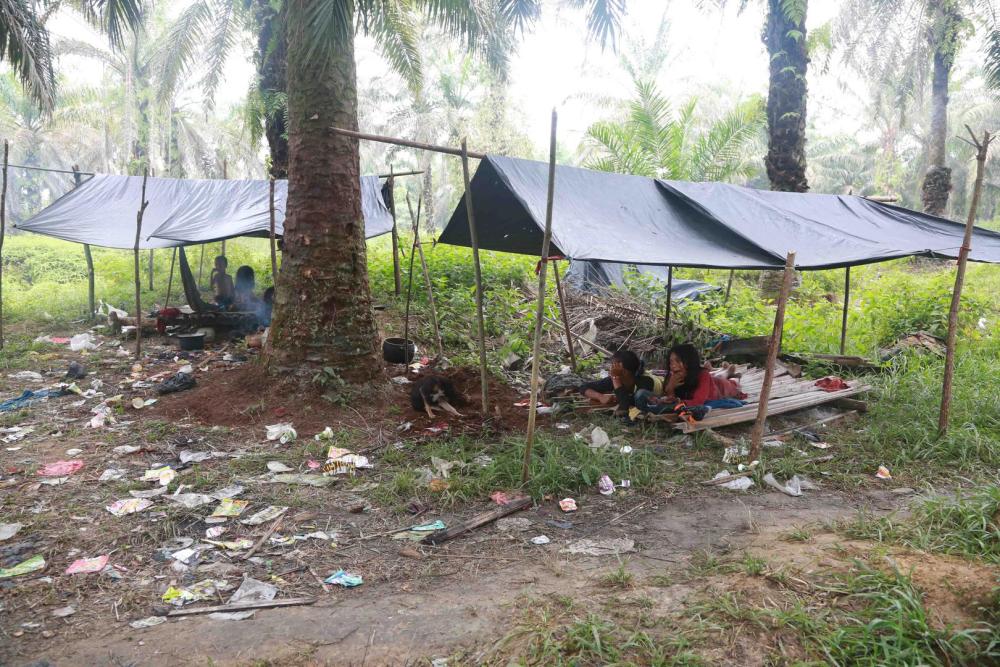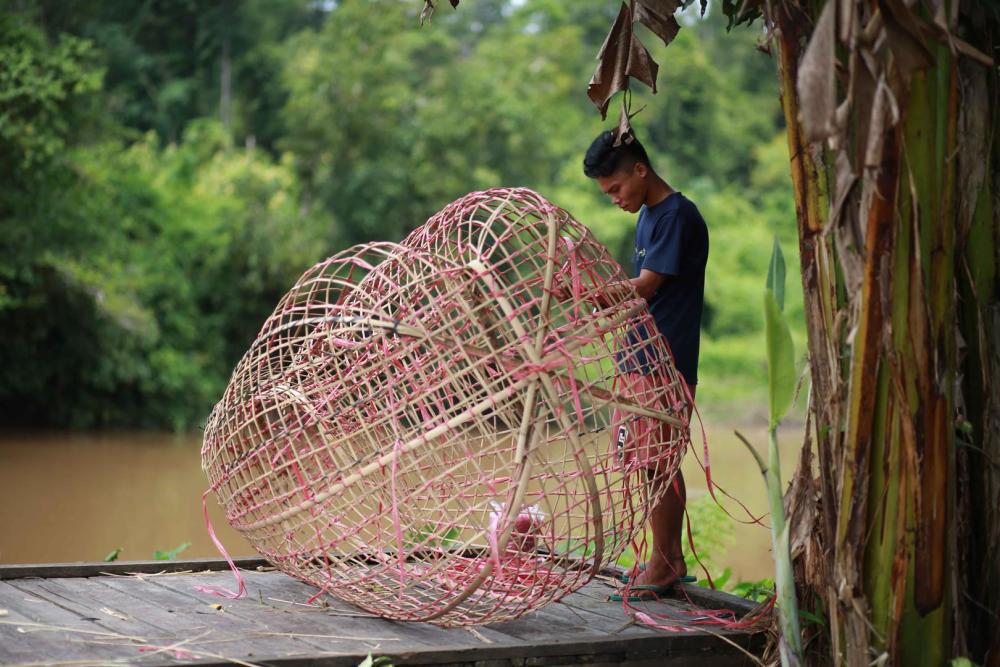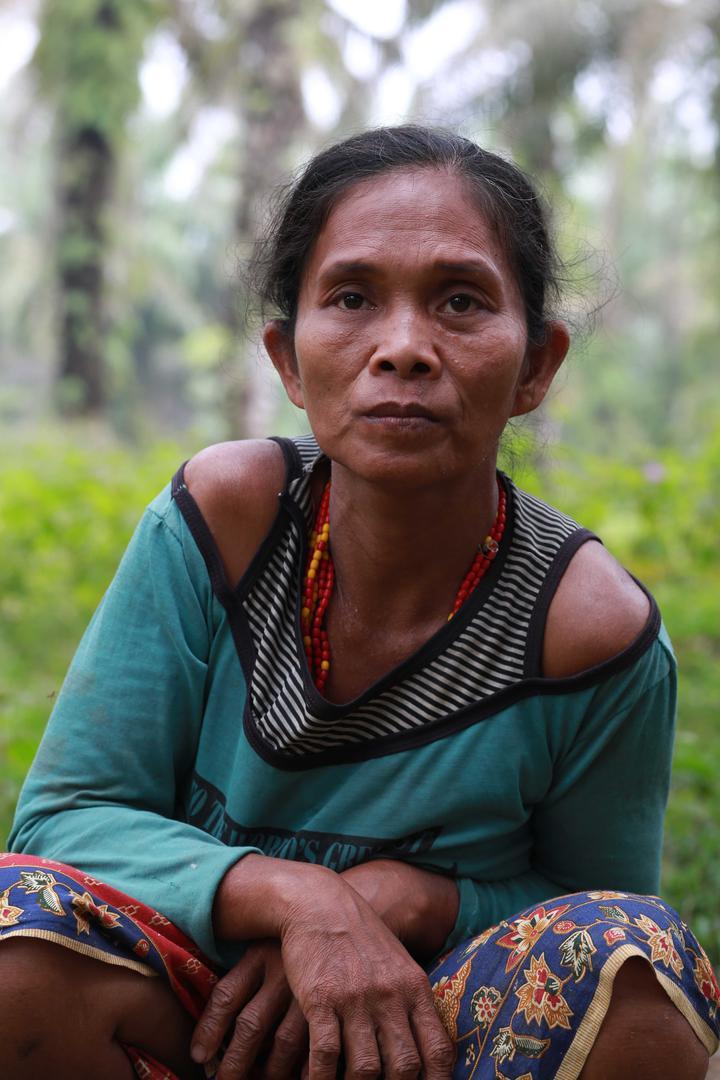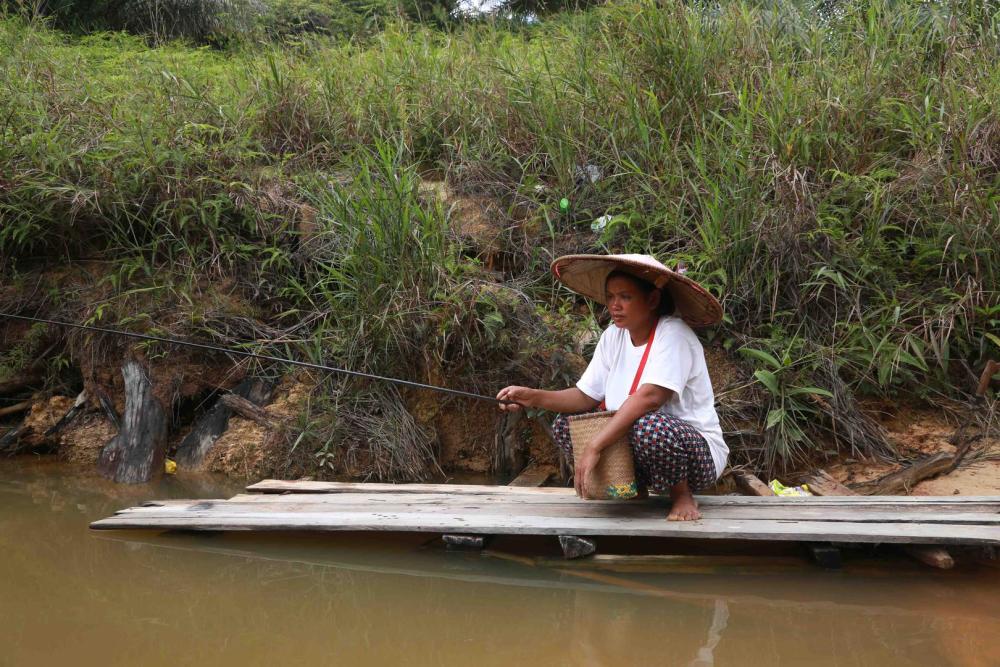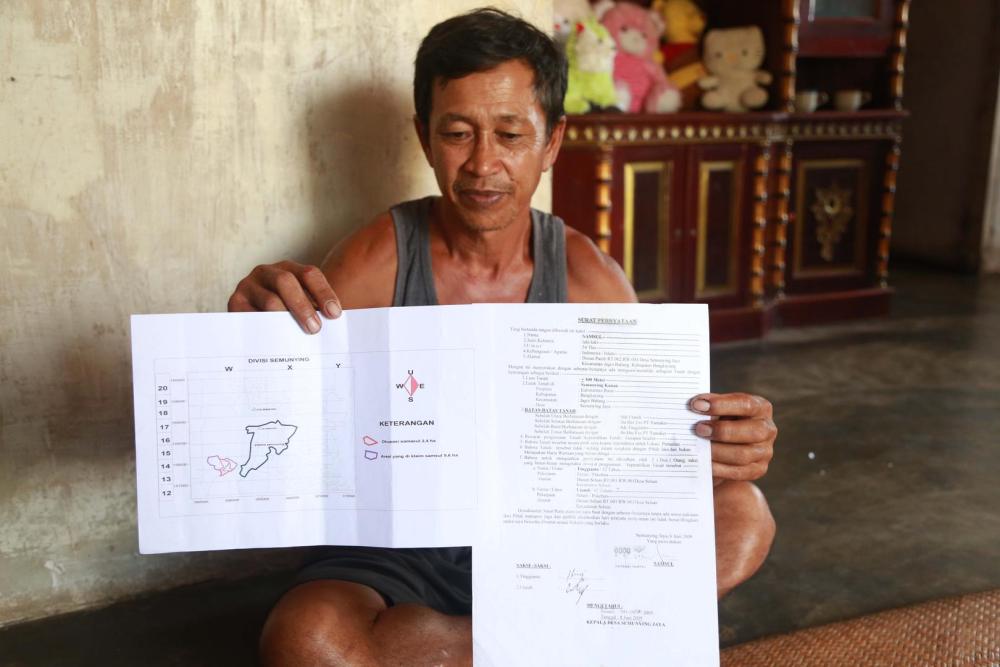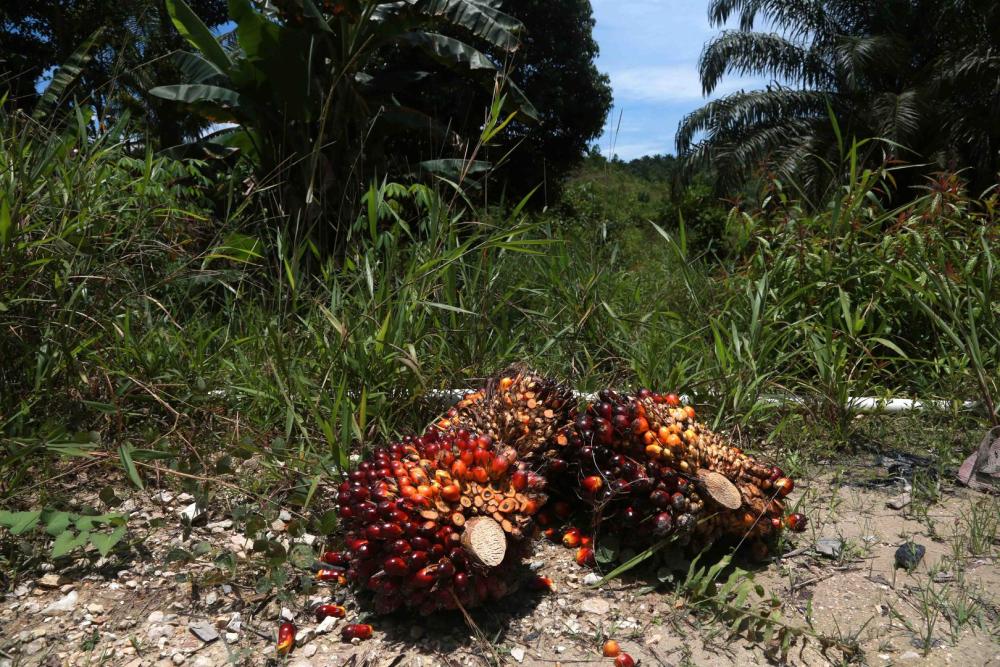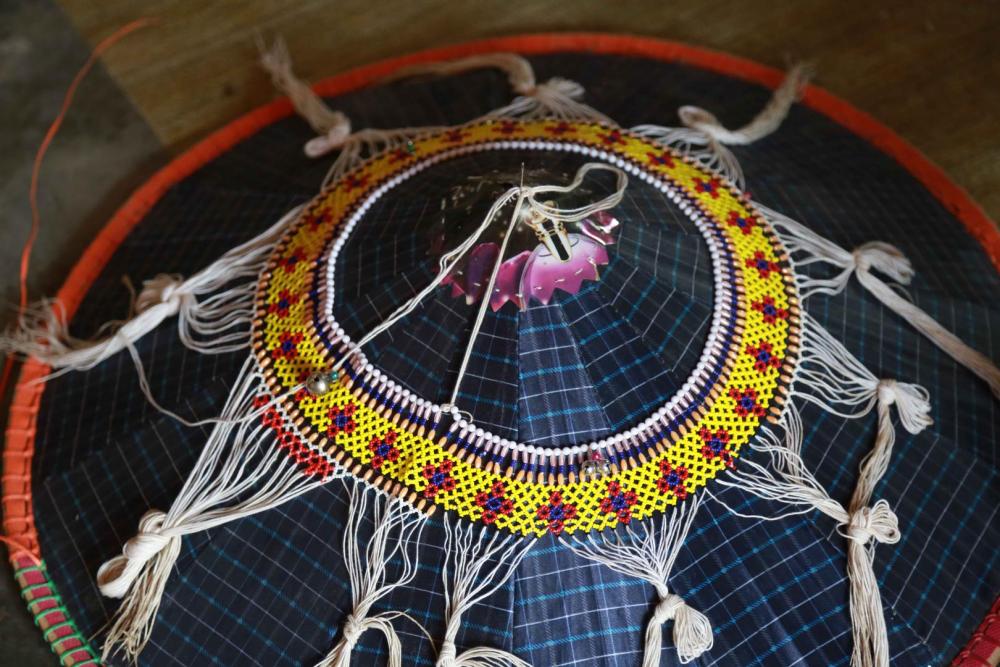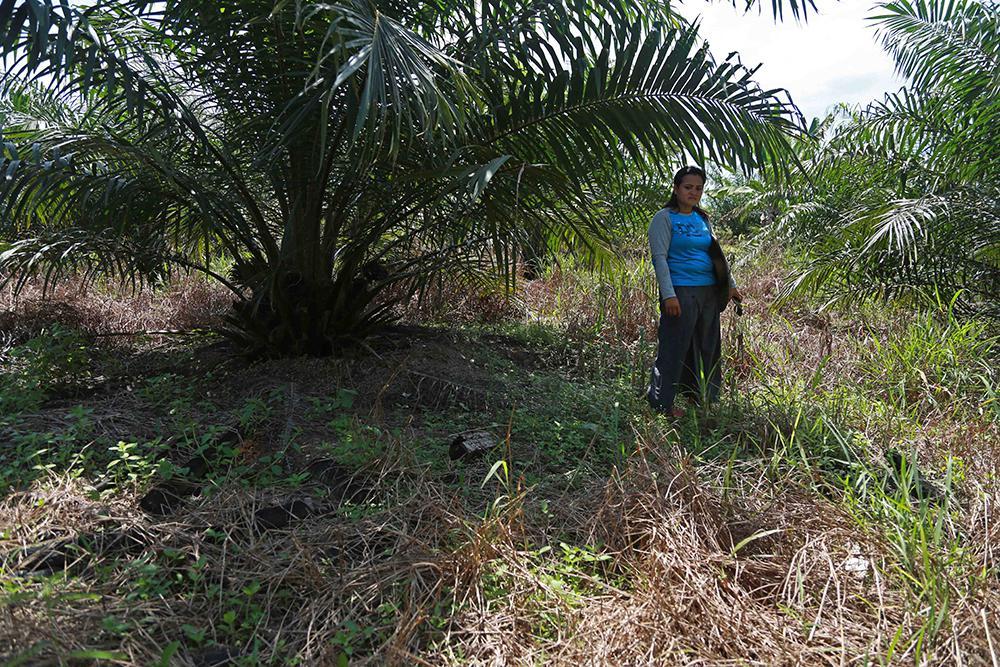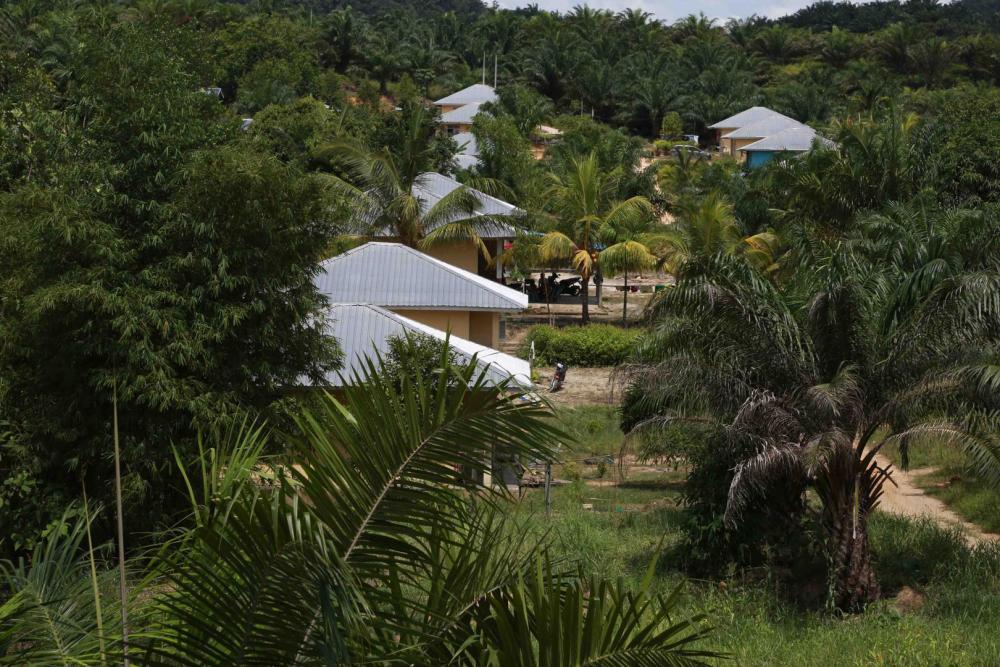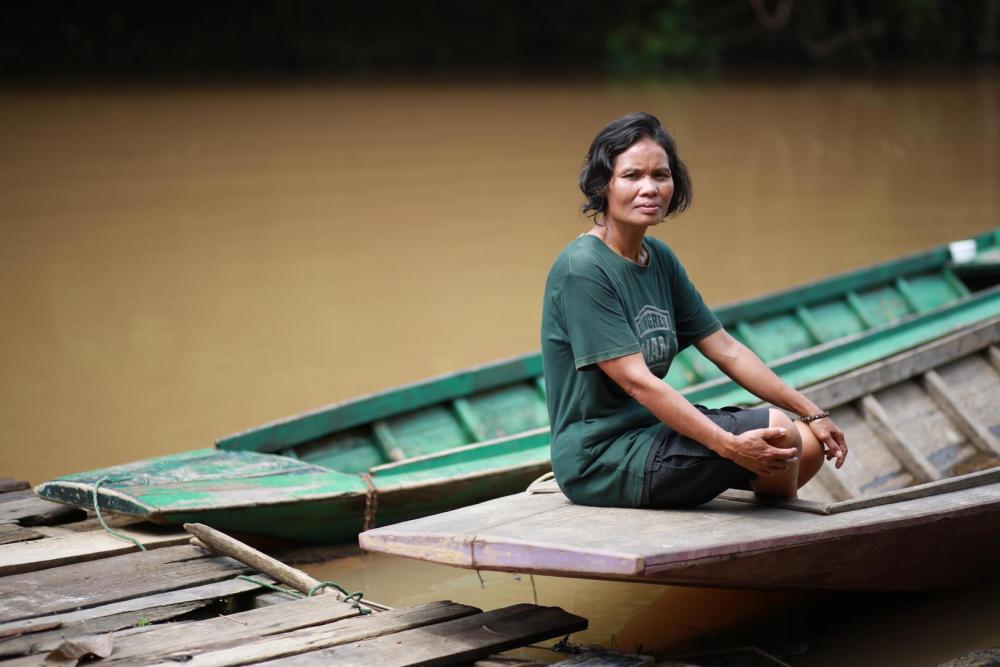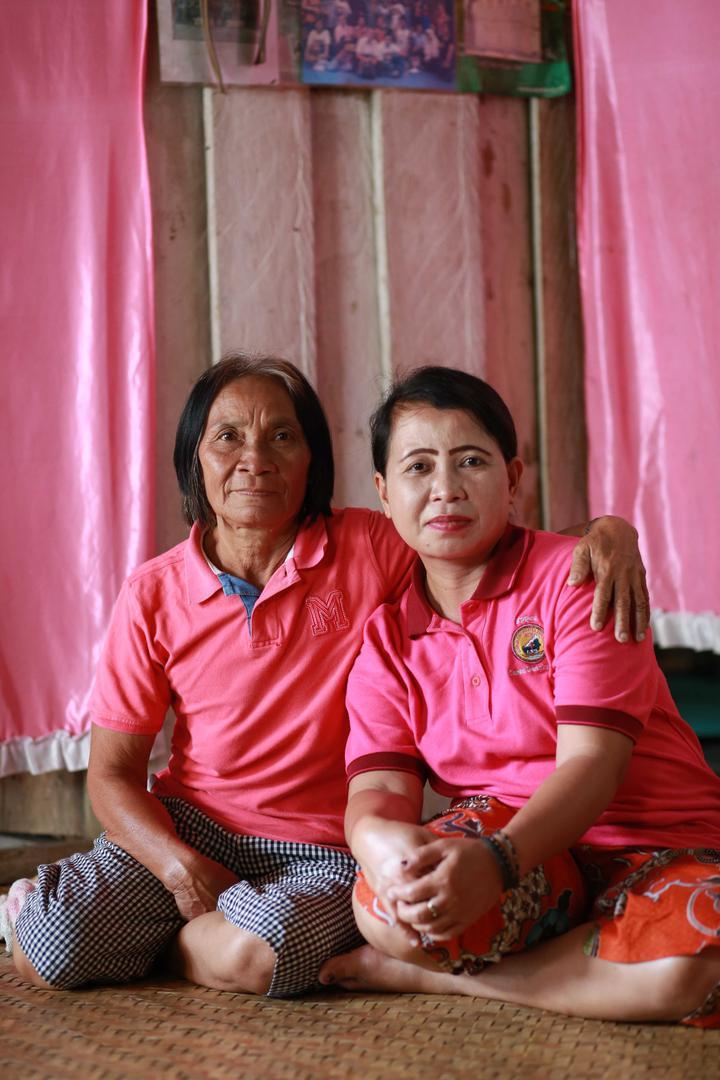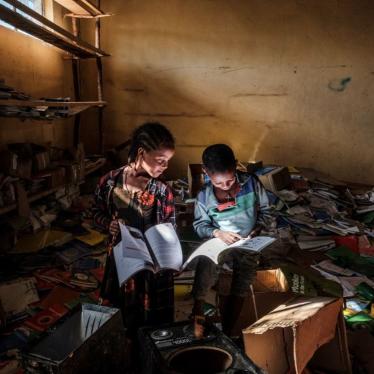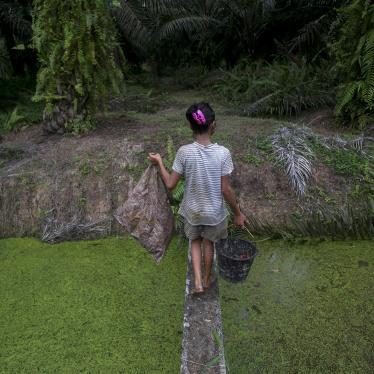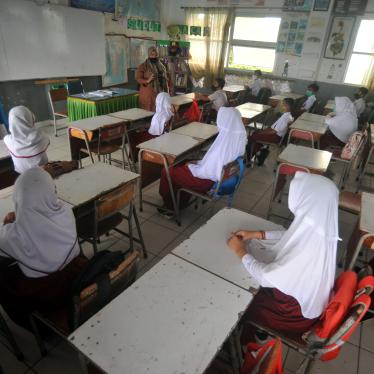What Indigenous communities did you focus on?
Indonesia is home to about 50 to 70 million Indigenous people, about a quarter of the country’s population. We looked specifically at the impact of large-scale oil palm plantations on two groups: the Iban Dayak in West Kalimantan, and the Orang Rimba in Jambi.
The two communities are very different. The Ibans have a more sedentary way of life: they farm, build wood houses, and live as a community in Dayak traditional long houses. The Orang Rimba are semi-nomadic and live in small groups. But for both, losing access to forest and land has erased their core identity, and the rituals they used to carry out can’t exist anymore.
What do their lives look like now?
It was shocking to see how these communities struggle. For the Orang Rimba, not being in the forest means not being able to forage, gather, and plant what they want and move when they want. They have limited access to water, and often go hungry for days. They can’t eat the forest’s fruits and roots or hunt for lizards there. They now live in plastic tents and rely on scavenging palm nuts that they boil or sell to buy rice or instant noodles.
What impact has the development of oil palm plantations had on land and forests?
It has resulted in massive forest loss. Between 2001 and 2017, commercial ventures in Indonesia destroyed more than 24 million hectares of its tree cover, an area nearly as large as the United Kingdom. Oil palm plantations accounted for over half of all forest depletion in Indonesia during this period. This loss of tree cover not only harms local Indigenous communities but also contributes to global climate change.
Companies have rerouted streams into trenches they’ve built so that even in the dry season, the palms have water. Indigenous people said they’ve lost access to fresh water sources, so they now rely on rainwater to cook and bathe. Some members worry that herbicides, pesticides, and fertilizers that they believe are used on plantations and effluent, or waste, from mills get washed off into the rivers, and that the water is polluted. Neither the government nor the companies have made information accessible concerning the quality of fresh water sources. People, especially Indigenous populations, should not have to fear getting sick from drinking the water.
Did any one person stand out for you?
Some Orang Rimba we met live in small groups of five to seven families within oil palm plantations. They move together when someone dies or they’re chased away by plantation security guards. I had been visiting the community throughout my stay. I knew there was a woman who was pregnant, but because I’m a stranger, I wasn’t supposed to go near her or take pictures of her, in accordance with their cultural beliefs. One day, we arrived very early in the morning and everyone was standing around. There was a lot of tension in the air, something was wrong. We found out that the woman was in labor, and they were tense because they’d gotten information that security guards were planning to come and break up their camp and destroy the tents. Everyone in the group was on high alert. They wouldn’t move until the woman had given birth. We sat off to the side, and I just started reflecting on what it would be like to be in this situation, and what it would be like for this baby, coming into a world where its people’s culture has been in many ways erased. And how the government wasn’t even looking at ensuring that things were better for these people, for the next generation.
She had the baby, and they started packing up right away. And I cannot imagine giving birth and then being loaded onto a motorcycle and driven off to a new location to create a new home.
Why did the government grant permits to oil palm plantation companies for land that belonged to Indigenous communities in the first place?
Successive governments in Indonesia turned a blind eye to forest clearance and prioritized economic gains. And now there are a web of laws that make it difficult for Indigenous people to claim their ancestral land.
What are some of the laws that make it difficult for Indigenous groups to claim ancestral land?
According to Indonesian law, if Indigenous peoples have not been legally recognized, they have no claim on land even if they have been living on it for generations. The process for Indigenous groups to gain legal recognition is managed by their district or province. Yet many districts and provinces do not have a system in place to recognize Indigenous peoples.
What steps have the government and the companies taken to address the claims of Indigenous communities?
In West Kalimantan, the government and various agencies initiated a mediation between the plantation company PT Ledo Lestari and the Indigenous community – but only 10 years after it started clearing the forest. As a result, PT Ledo Lestari paid monetary compensation to some for their family land, but not their community forest. It relocated others, but gave them single brick houses instead of their traditional long houses. The compensation didn’t take into consideration long-term impacts on their livelihoods, including loss of access to forests and food.
PT Ledo Lestari has not responded to Human Rights Watch’s hand-delivered letters, calls, and text messages.
PT Sari Aditya Loka 1, the company that operates in Jambi, explained in a letter to Human Rights Watch that they provided educational, health, and economic initiatives in the area. It said that in over 10 years it had always strived to help the Orang Rimba. But these programs would absorb the Orang Rimba into mainstream society, erasing their culture.
The company said it and the government had built houses for the Orang Rimba, but most people who were assigned to houses sleep outside, so the houses are vacant. When I went through one collection of houses, it was deserted.
The company’s efforts are not done in collaboration with the Orang Rimba, and the company isn’t thinking about what the Orang Rimba want and need. What they want is their land, and they need access to land to be able to plant, grow, and live on it, without fear of being chased off.
What can be done to help these Indigenous communities?
Various Indonesian laws already require companies to consult local communities at every stage of the process to obtain government permits for creating and operating plantations. In 2018, President Joko Widodo announced a moratorium on new permits to oil palm plantations. It’s a good start, but they need to do more.
There are bills sitting in parliament that the government should enact. For instance, the draft law on the Recognition and Protection of Indigenous Peoples’ Rights, which would clarify how communities can become legally recognized as Indigenous and lay claim to their land. We would like the government to better monitor the human rights impacts of oil palm plantations on local communities. We ask that donor organizations like the World Bank, which is supporting a program to map out all land in Indonesia, ensure that land disputes are resolved before land is mapped. We also call for a long-term land conflict resolution commission that could hear land disputes prevalent all over Indonesia.
